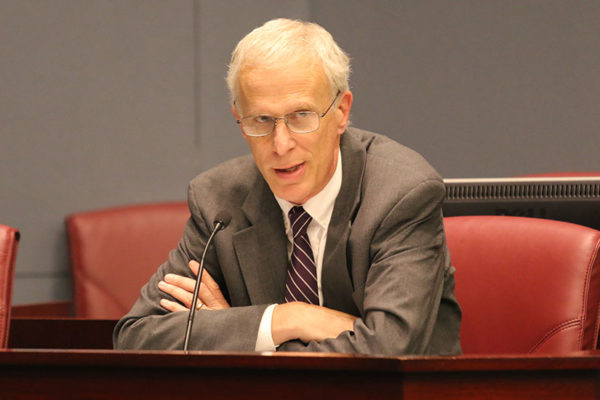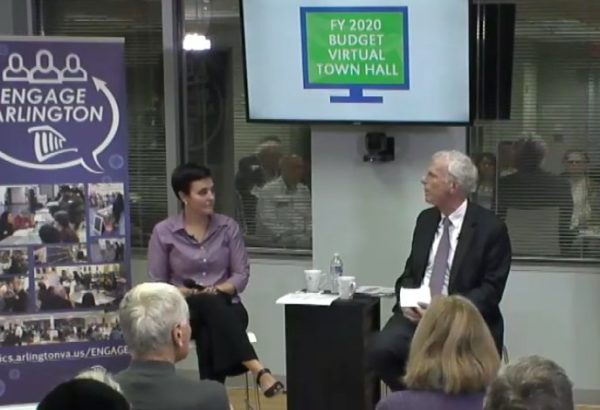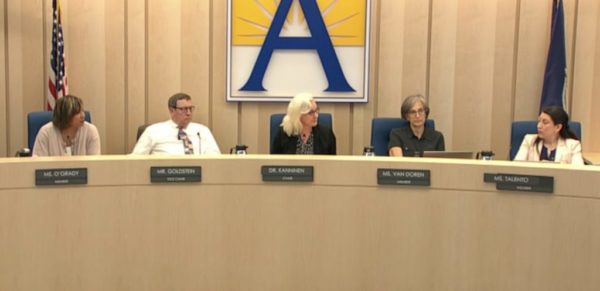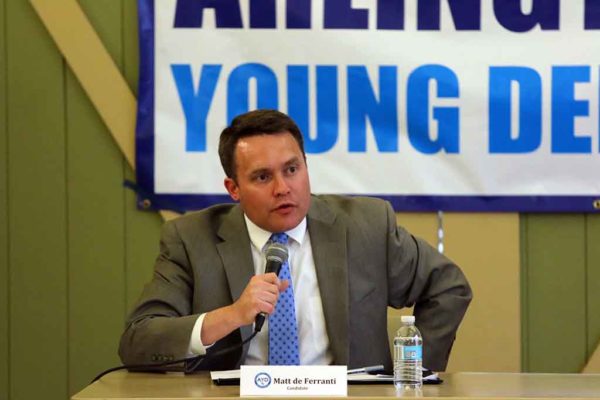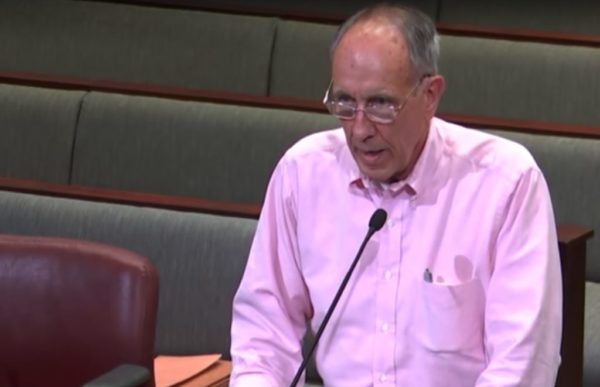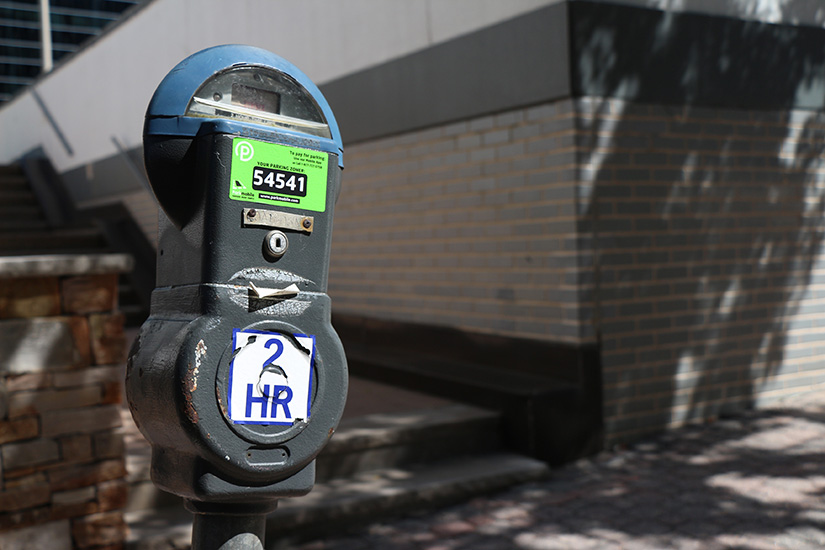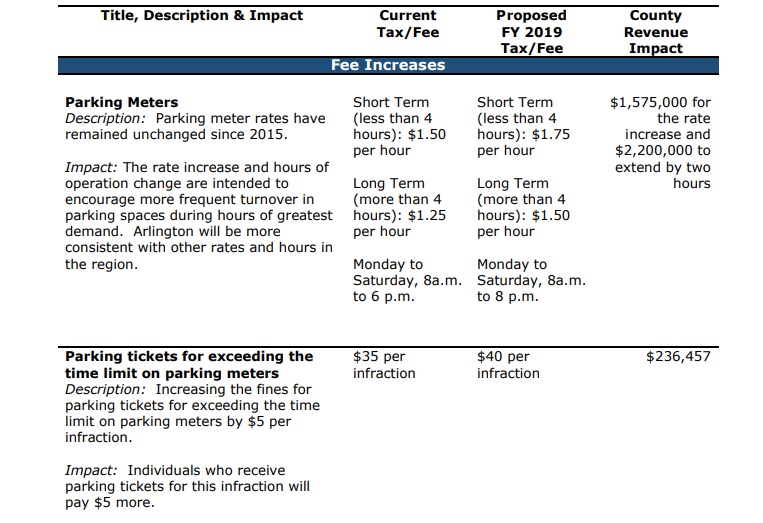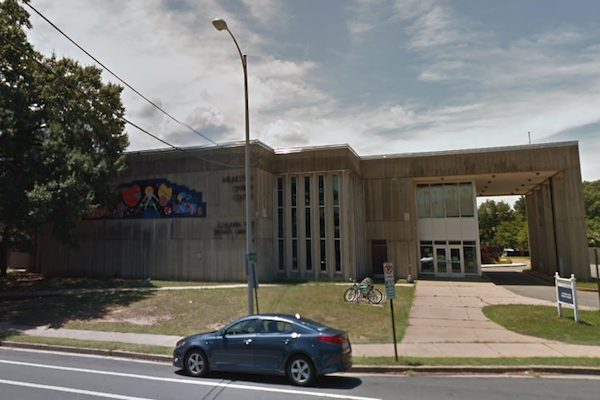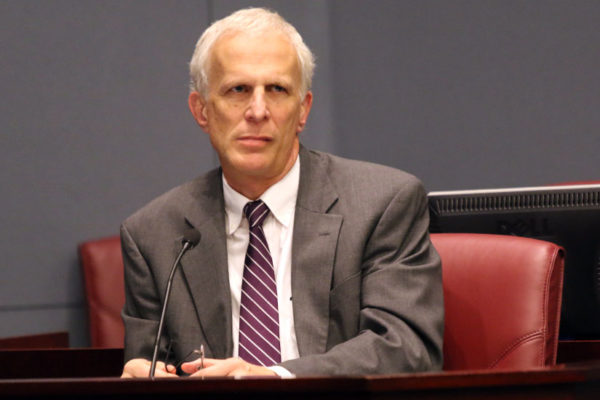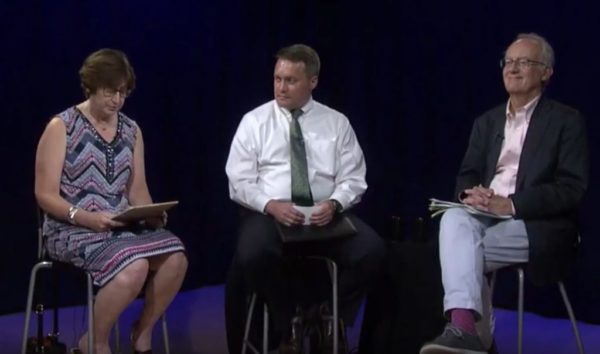
Both contenders for the lone County Board seat on the ballot this fall say they want to see more money go toward grants for local artists, though they differ a bit on the exact logistics.
In a forum focused on the county’s arts scene, hosted by Embracing Arlington Arts and Arlington Independent Media earlier this month, both independent incumbent John Vihstadt and Democratic nominee Matt de Ferranti emphasized that the arts have such a vital role to play in the county’s cultural and economic health that the county needs to subsidize local programs.
Furthermore, both candidates want to see the county restore the $30,000 the Board slashed from the new year’s budget in funding for “Challenge Grants,” which provide some matching funds for artists who attract private donations. Vihstadt and de Ferranti both advocated for even increasing the amount offered through the program in future budget cycles, even with the county facing an uncertain financial future due to Metro funding obligations and a persistently high office vacancy rate.
Though the forum was light on stark disagreements between the two, Vihstadt painted the private sector as having an especially large role to play in supporting the arts. Though he remains confident the county will be able to eventually increase grant funding, he cautioned that Arlington’s “economic headwinds” will inevitably limit what the county can do.
“The arts are going to have to step up to the plate a bit, maybe to a greater degree than the art community has, in terms of really leveraging those private sector resources,” Vihstadt said. “The government can be a catalyst, it can help with climate change of a sort, but the government can’t do it all.”
He pointed out that the Board already took one step in the direction of encouraging artists to embrace the private sector when it restored $70,000 in funding for AIM originally set to be cut from the fiscal 2019 budget, which came with the condition that the organization pursue matching funding from donors.
“That was controversial, but I felt it was the right thing to do to encourage and really make sure that AIM would further reach out into that community and bring in those private sector dollars,” Vihstadt said.
De Ferranti says he was certainly glad to see those AIM cuts reversed, calling them “short sighted,” but he was more willing to see a role for direct county spending, connecting the success of Arlington’s arts scene to its economic prosperity.
“If we view this as a zero-sum game, then Arlington will lose in the long term,” de Ferranti said. “We have to see it as how we can grow together and have the vision to find the right investments to move us forward so the budget isn’t so tight… We have to think about, how do we create an environment where millenials don’t want to go to the Wharf and the Anthem, but want to stay in Crystal City, or at least consider it.”
Beyond direct subsidies, de Ferranti also expects the county can do more to help artists afford to live in Arlington. For instance, he pointed to the Maggie Walker Community Land Trust in Richmond as a model for the sort of program the county could experiment with to make home ownership more affordable — the nonprofit acquires single-family homes to sell to qualified buyers at affordable prices, but maintains ownership of the land itself. That helps the nonprofit reap the benefit of any increase in market value when owners decide to sell, which it uses to keep prices affordable going forward.
De Ferranti foresees the county creating a similar system matching artists, or even groups of artists in co-op communities, with affordable homes.
“Artists desperately want to live here… but in Arlington, being middle class is not easy,” de Ferranti said. “We need to make sure we’re caring for folks who need the chance to get up that economic ladder.”
Yet Vihstadt and de Ferranti both expressed confidence that space in the Four Mile Run valley in Nauck will someday be home to more affordable studio space for artists of all stripes. Though the creation of an “arts district” in the area has at times stirred controversy throughout a lengthy planning process for the valley, both candidates say they feel such a solution is the right fit for its future.
“We will have an arts district in harmony with the other uses around that park area, and we’ll have that synergy,” Vihstadt said.
Photo via YouTube


